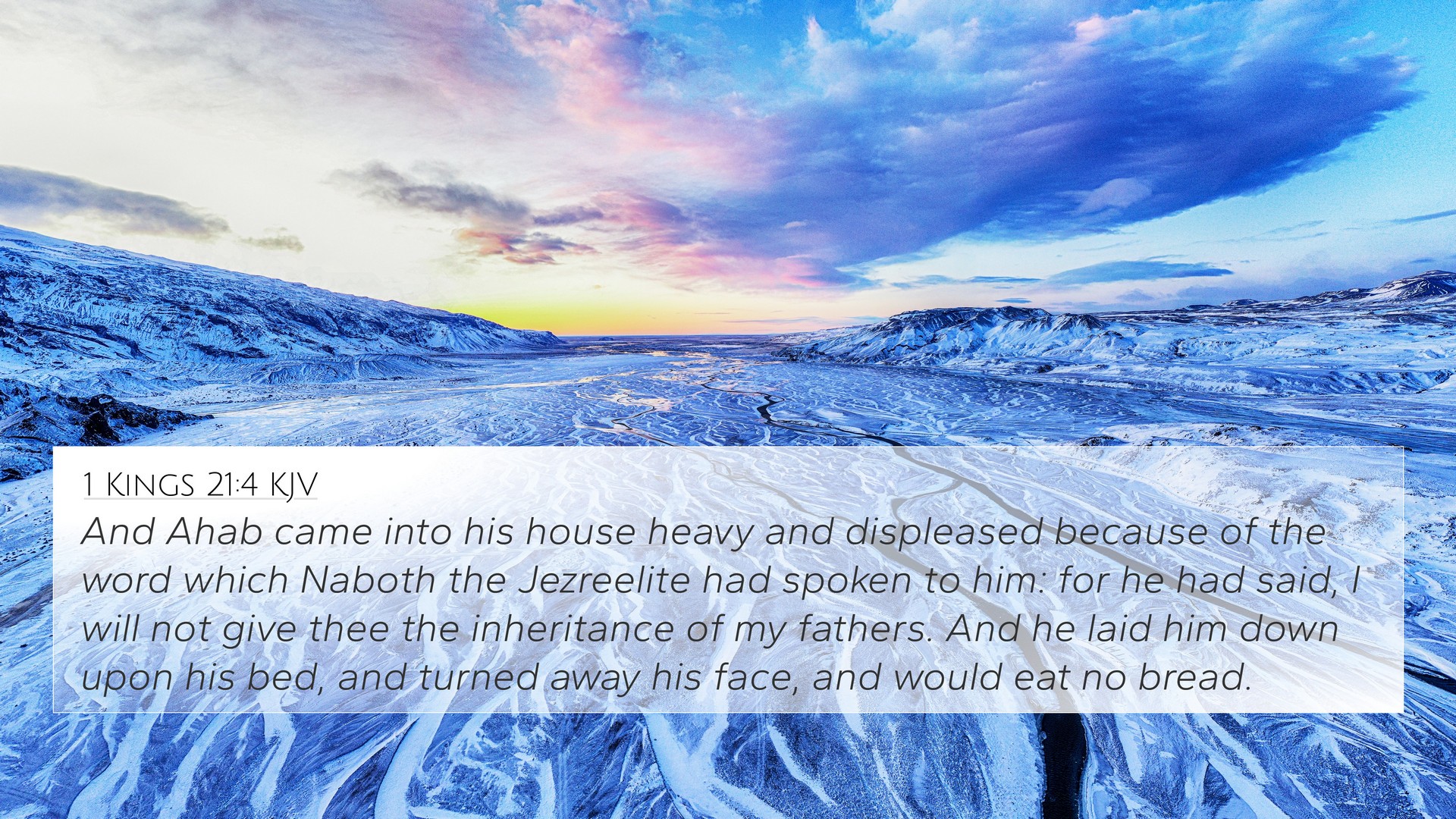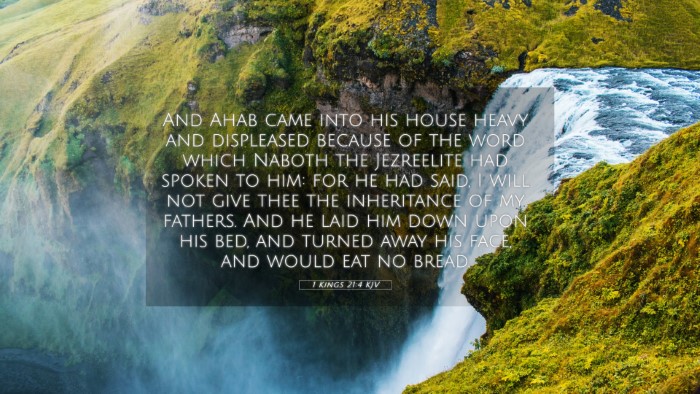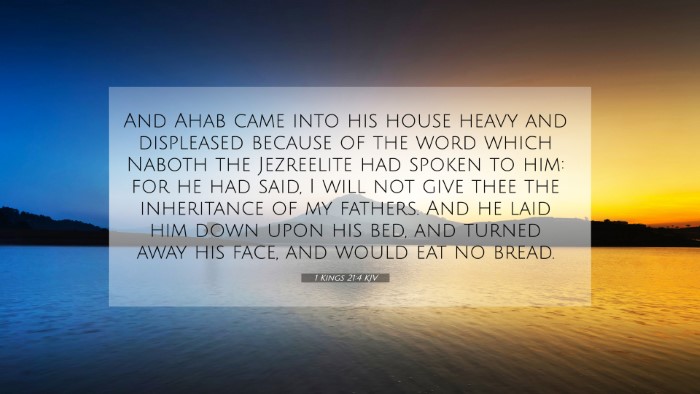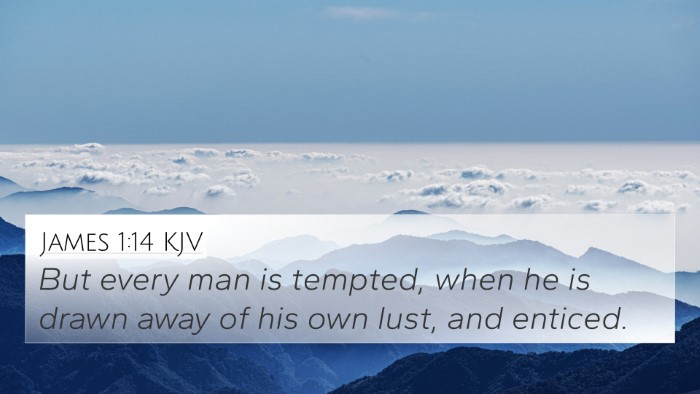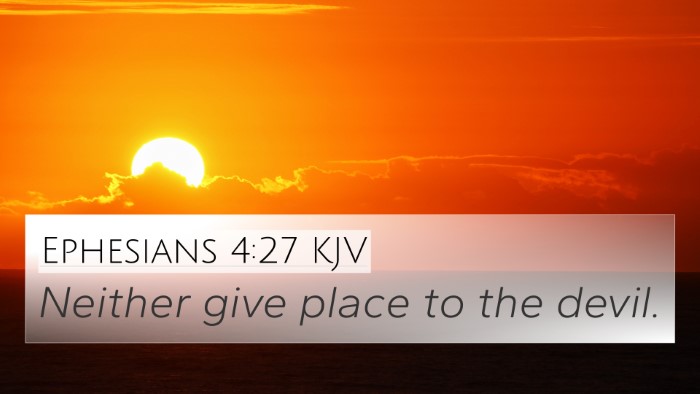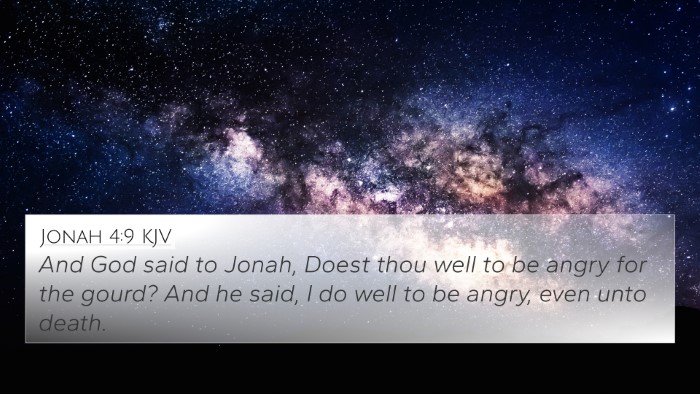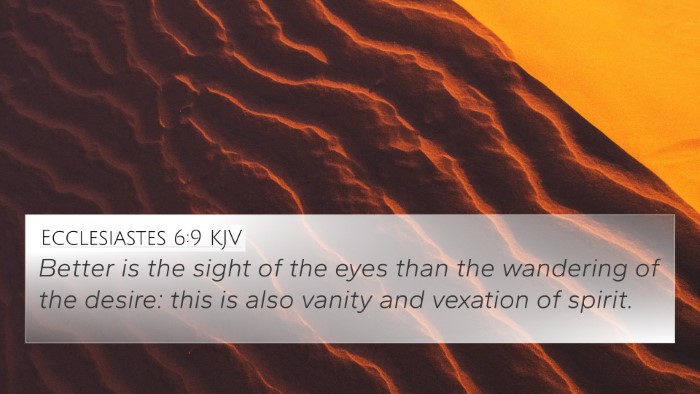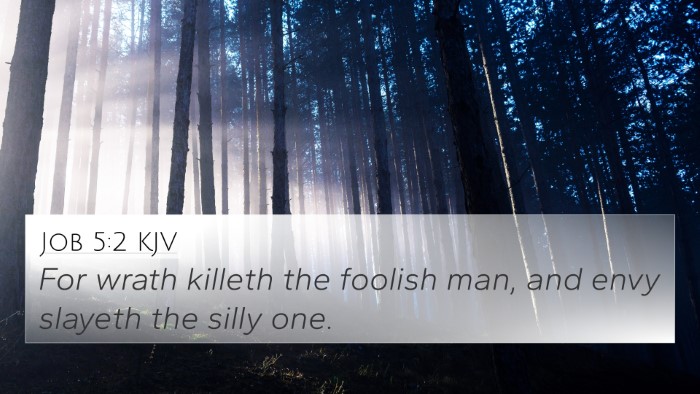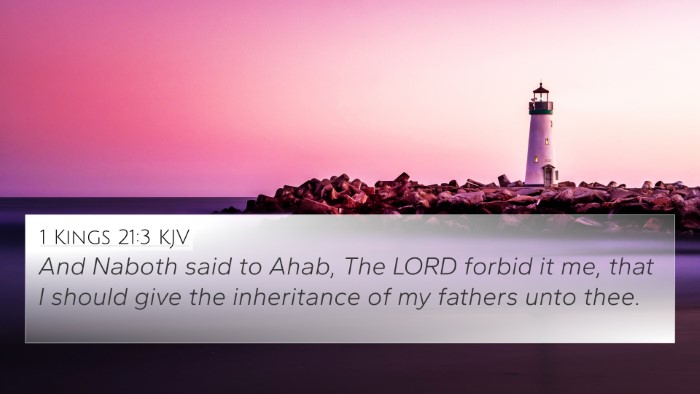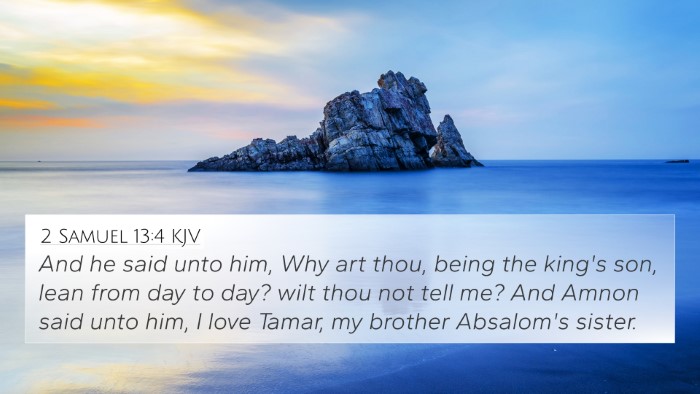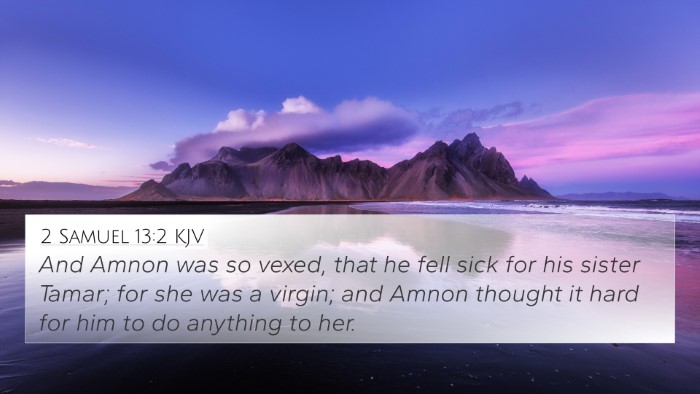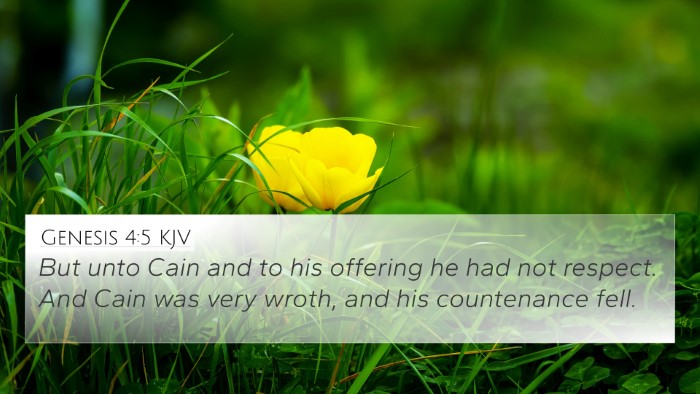Understanding 1 Kings 21:4
Verse: "So Ahab went into his house sullen and displeased because of the word which Naboth had spoken to him; for he had said, 'I will not give you the inheritance of my fathers.' And he lay down on his bed and turned away his face, and would eat no food." (1 Kings 21:4)
Summary of the Verse
This verse captures the moment King Ahab experiences deep disappointment after Naboth refuses to sell his vineyard, an inheritance that is sacred and a family legacy. Ahab's reaction—sullen and detached—reveals not only his desire for the land but also his inability to accept a "no" answer. This situation reflects the tension between personal desire and moral or familial obligations.
Insights from Public Domain Commentaries
Matthew Henry's Commentary
Matthew Henry emphasizes Ahab's selfishness and how his affliction over Naboth's rejection leads him into a state of despair. Henry notes that Ahab’s behavior is indicative of a deep-seated greed and entitlement. His reaction shows a disregard for the sanctity of inheritance, which was a fundamental aspect of Israelite culture.
Albert Barnes' Notes
Albert Barnes provides insight into Ahab's emotional state, describing it as a childish tantrum. Barnes points out how Ahab does not seek justice or honor, but personal gain, which shows a corrupt heart. He contrasts Ahab's behavior with Naboth's integrity, highlighting the moral victory of Naboth standing firm to uphold his family's heritage.
Adam Clarke's Commentary
Adam Clarke delves into the implications of Ahab's behavior, suggesting that his actions are reflective of a broader theme of power and desperation in leadership. Clarke discusses the idea that a king, wielding such authority, should be above petty grievances, yet Ahab is portrayed as something less—an insecure ruler whose confidence is shaken by the moral stand of a simple man.
Cross References
This verse can be cross-referenced with several other Scriptures that provide deeper insight and connections with its themes:
- Leviticus 25:23-28 - Discusses the laws regarding land inheritance and its importance to the Israelites.
- 1 Kings 21:1-3 - The initial request of Ahab to Naboth for the vineyard shows Ahab's entitlement and sets the stage for his reaction.
- James 4:2-3 - Highlights the concept that desires can lead to conflicts, as seen in Ahab's thwarted ambitions.
- Proverbs 14:30 - A healthy heart brings life to the body, whereas envy rots the bones; illustrating Ahab’s emotional turmoil.
- Psalm 37:1-2 - Encouragement not to fret over evil-doers, akin to Ahab’s frustrations over Naboth's refusal.
- Micah 2:2 - Critique of those who covet fields and take them by force, resonating with Ahab's motives.
- Luke 12:15 - Warning against greed, as Ahab displays when he desires Naboth's vineyard.
- Matthew 5:6 - A blessing for those who hunger and thirst for righteousness, contrasting Ahab’s selfish desires.
- Philippians 2:3-4 - Encouragement to act selflessly, opposing Ahab's self-centeredness.
- 1 Timothy 6:10 - The love of money as the root of all evil, reflective of Ahab's greedy pursuit of Naboth's property.
Thematic Connections
The themes in this verse connect to broader Biblical discussions on:
- Greed and Heart Condition: Expounds upon the insecurity of kings and how desires can corrupt the heart.
- Inheritances and Land Rights: Cultural significance of land and heritage in Israel’s laws and their divine implications.
- Conflict Resolution: How personal desires can lead to larger conflicts, both personal and communal.
Conclusion
1 Kings 21:4 serves as a poignant reminder of the dangers of unchecked desires and the importance of integrity in the face of adversity. By linking this verse with various biblical passages, one can gain a rich understanding of the moral and ethical dynamics at play, enriching one's study and application of Scripture.
